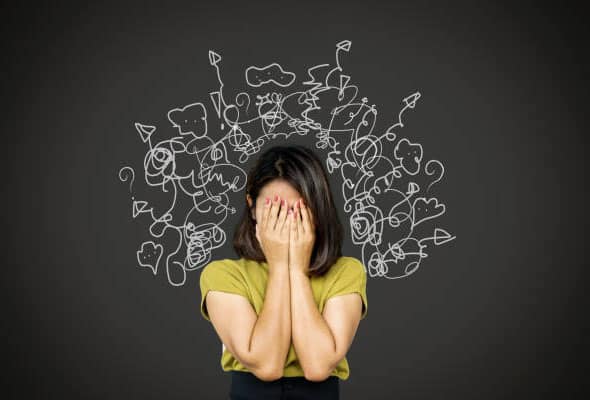Being single for too long can lead to emotional and mental challenges. While solitude can empower, prolonged singlehood may stir up some unexpected effects. Mynt Models explores how these impacts shape your well-being and offer tips for maintaining balance, regardless of relationship status.
Table of Contents
- Is Being Single Really That Bad?
- 11 Psychological Effects of Being Single Too Long
- 1. Fear of Rejection: Your New Best Frenemy
- 2. Confidence? What Confidence?
- 3. Social Anxiety: The Party is Over Before It Starts
- 4. Loneliness: The Uninvited Guest
- 5. The Self-Improvement Trap: Is It a Blessing or a Curse?
- 6. Priorities: More About You, Less About Us
- 7. Understanding Others’ Feelings: A Bit of a Challenge
- 8. Romantic Desensitization: Too Many Years Without the Baci (Kisses)
- 9. Giving Up the Safety of Solitude: A Daunting Leap
- 10. Feeling Aimless: Lost in the Plot
- 11. Bad Habits: A Lonely Trap
- Is Being Single Really That Bad for Your Mental Health?
- Do Long Stints of Singlehood Make You Bad at Relationships?
- Can Being Single Too Long Take a Toll on Your Body?
- Is It Possible to Overcome the Psychological Effects of Being Single for Too Long?
- Living a Life Full of Connections: Your Next Chapter
Is Being Single Really That Bad?
Being single doesn’t have to be a curse! It can be your time to shine. But, like everything, too much of anything can lead to a few bumps. Let’s explore whether the solo life is all it’s cracked up to be.
11 Psychological Effects of Being Single Too Long
Being single for too long? It’s not all Netflix and chill. Extended solo time can bring a surprising cocktail of emotions and quirks. From fear of vulnerability to losing touch with romance, here’s a breakdown of the unexpected psychological side effects.
1. Fear of Rejection: Your New Best Frenemy
Remember that scene in Bridget Jones’s Diary when Bridget fears rejection at every turn? Well, after a long stretch of solo living, that fear starts to feel more like your personal soundtrack. You’ve gotten so used to being your +1 that letting someone in feels like an emotional bungee jump—terrifying but thrilling.
According to psychologist Dr. Guy Winch, “When we are single for long stretches, we tend to internalize rejection as a reflection of our worth” (The Case for Rejection Therapy, 2017). La paura (fear) of rejection can become almost a reflex, and suddenly, that casual flirtation feels like you’re auditioning for a role you didn’t sign up for.
2. Confidence? What Confidence?
Without a partner around to remind you that you’re amazing, confidence can take a nosedive. It’s like trying to perform a solo in a jazz band when you’ve spent too much time listening to the background music. You start wondering, “Is it me, or is this just my je ne sais quoi fading? ”
Research from the University of Texas found that single individuals often experience lower levels of self-esteem than those in relationships, particularly if they lack a solid social network (Journal of Social and Clinical Psychology, 2018). That internal monologue can get old fast, making you second-guess yourself in ways you didn’t when you had a partner saying, “You’ve got this!”
If you’ve gotten used to your own company, navigating social situations can feel a bit like stepping into La Dolce Vita without knowing how to order the espresso. What once felt like a casual outing now seems like an obstacle course, and you begin questioning whether you’ve missed the “group dynamics” memo.
A 2018 study published in The Journal of Social and Personal Relationships revealed that prolonged singlehood often increases social anxiety, especially when individuals feel socially disconnected (Journal of Social and Personal Relationships, 2018).
The fear of mingling and wondering if you’ll say the wrong thing can turn social events into high-stakes drama. But don’t worry, you’re not alone; even the most confident can stumble when it’s been a while.
4. Loneliness: The Uninvited Guest
Loneliness doesn’t always knock at the door; sometimes, it slips in unnoticed, like an old film noir villain. It’s easy to brush it off—until it hits you like a slow, melancholy Italian ballad.
According to a 2020 study by the National Institute on Aging, prolonged isolation can increase the risk of depression and even lead to cognitive decline (National Institute on Aging, 2020).
You find yourself remembering those little moments when you used to share space with someone—cooking together, binge-watching movies, or just talking about nothing. Suddenly, that quiet apartment starts to feel un po’ troppo empty, and the silence, once soothing, begins to feel louder.
5. The Self-Improvement Trap: Is It a Blessing or a Curse?
You’ve heard it a thousand times: “Work on yourself!”. But after a while, it feels like you’re chasing an elusive ideal no one can measure up to. It’s like a never-ending montage from a motivational movie where you’re constantly evolving, yet somehow, you’re still waiting for your romantic epilogue ending.
According to psychologist Dr. Terri Orbuch, too much time spent focusing on personal growth without meaningful connections can lead to a perfectionist trap. “The longer we remain single, the more we can turn inward and focus solely on self-improvement,” she notes (Psychology Today, 2021).
You start wondering if there’s a version of yourself that’s so improved that relationships seem secondary. But sometimes, you can overdo it—improving yourself so much that you wonder if you’re preparing for a life that doesn’t have room for a partner. Can there be too much self-growth?
6. Priorities: More About You, Less About Us
When you’re flying solo for a while, your priorities tend to shift. You’re your main character now and get to call the shots. But just like la bella figura (the beautiful figure) in Italian culture, your once romantic ideals can start to feel less important.
A study by the University of California found that individuals who remain single for more extended periods often become more focused on career goals or personal pursuits, sometimes at the expense of emotional connection (University of California Research, 2019).
After years of solo decision-making, letting someone else into that equation can feel like rearranging furniture in a room that’s already perfectly designed. You might ask yourself, “Do I really need to let someone in now?”
7. Understanding Others’ Feelings: A Bit of a Challenge
It’s not that you’ve lost your empathy; it’s just that after a while, tuning into others’ emotions feels like trying to follow the plot of an avant-garde French film. You can’t quite get the subtleties.
Dr. John Cacioppo, a leading researcher on loneliness, found that social isolation can dull our sensitivity to others’ emotions. “The longer we go without close relationships, the harder it becomes to interpret emotional cues and be attuned to others’ feelings,” he explains (Loneliness: Human Nature and the Need for Social Connection, 2008).
The longer you go without close relationships, the harder it becomes to read between the lines. It’s like you’re used to speaking your own emotional language, and now, suddenly, you need to relearn the dialect of cuore (heart) and sentimenti (feelings).
8. Romantic Desensitization: Too Many Years Without the Baci (Kisses)
Romantic gestures, once thrilling, might start to feel outdated. After a long stretch of solo life, the idea of courtship, with its roses and candlelit dinners, seems almost stancante (exhausting).
A study in Psychology Today suggests that individuals who remain single too long can become desensitized to the excitement of romantic gestures, viewing them as unnecessary or overly dramatic (Psychology Today, 2017).
When you’ve gotten so used to your own rhythm, romantic moments feel like they’re part of an old movie that no longer excites you the way it used to. You might wonder, “Is this still amore or just a scripted scene?”
9. Giving Up the Safety of Solitude: A Daunting Leap
Letting someone into your life after being single for so long is a bit like stepping out of the comfort of your own bastione (fortress) into the wild unknown. The thought of surrendering your personal space can feel downright terrifying, like giving up the sicurezza (safety) of your own quiet world.
Dr. Paul Schroeder, a professor of psychology, notes that “the longer you remain single, the more difficult it becomes to let someone into your emotional world” (Psychology and Loneliness, 2015). But sometimes, the leap into vulnerability is the first step towards a beautiful connection. It just takes a little courage—and a bit of passione (passion).
10. Feeling Aimless: Lost in the Plot
Ever feel like your life’s script has gone off track? That aimless feeling, like a plot twist in an indie film, can hit when you least expect it. You start wondering, “What’s next for me?” Your friends are getting into relationships and having families, and you’re here, wondering whether you missed a memo. But don’t panic; la vita (life) has a funny way of guiding you when you least expect it.
According to the American Psychological Association, prolonged singlehood can sometimes lead to feelings of aimlessness, especially if a person has yet to define their individual goals outside of romantic relationships (APA, 2019).
11. Bad Habits: A Lonely Trap
With no one to check your bad habits, the bad habits seem to multiply like an unruly garden. Skipping workouts, eating pizza at 3 AM, or binge-watching entire seasons of a show you’ve already seen—these little indulgences can creep up when you’re on your own.
Dr. Kristen Fuller, a mental health expert, states, “Loneliness often leads to unhealthy coping mechanisms, such as overeating, sleeping too much, or overindulging in unhealthy substances” (Loneliness and Mental Health, 2018). But remember, even a dolce vita (sweet life) needs some balance to stay healthy.
Is Being Single Really That Bad for Your Mental Health?
Imagine being a lone wolf in the wild, howling at the moon, but after a while, you start hearing voices—your own. That’s what happens when prolonged singlehood takes its toll on your mental health. While solo time can foster self-discovery, it can also spark anxiety, depression, and a heavy dose of loneliness.
Research indicates that people who remain isolated for too long are at greater risk of mental health challenges, from a persistent sense of worthlessness to chronic stress (National Institute on Aging, 2020). The key here is balance—don’t let solitude become solitary confinement.
Do Long Stints of Singlehood Make You Bad at Relationships?
It’s like you’ve spent years curating the perfect playlist—your life is in perfect sync with your own rhythm. But when the time comes to duet, you realize you might’ve forgotten how to harmonize.
Long-term singlehood has a sneaky way of turning you into a solo artist, leaving you a little out of practice when it comes to the world of relationships. Social interactions can feel more like awkward rehearsals, and emotional connections might slip out of tune.
According to Dr. Arthur Aron’s research (Journal of Personality and Social Psychology, 2019), isolation can erode our ability to connect with others, leaving us feeling more like a karaoke star than a romantic lead. But fear not! It’s not a lost cause—just prepare for a few off-key moments while you relearn the melody of us.
Can Being Single Too Long Take a Toll on Your Body?
The emotional isolation of being single for too long can ripple through your body like an opera aria that lingers in your chest—strong, deep, and perhaps a little too intense.
Beyond the obvious psychological effects, loneliness has been linked to higher inflammation and greater risks of heart disease (Psychosomatic Medicine, 2017). While your heart may not sing with joy during extended solo time, your body is likely giving you the side-eye.
It’s about more than just food and exercise—it’s emotional wellness that can keep your body in balance. So, next time you’re tempted to skip that walk, remember that salute (health) is a reason to keep moving.
Is It Possible to Overcome the Psychological Effects of Being Single for Too Long?
Absolutely—si, oui, and yes! Just because you’ve been navigating this solo ship for years doesn’t mean it’s too late to switch the course. Overcoming the psychological impacts of being single takes intentionality and effort—like re-entering the dance floor after years of watching from the sidelines.
Research shows that social re-engagement, seeking professional help, and even simple mindfulness practices can reverse the toll of isolation (Psychology Today, 2021). Think of it like rewiring your personal narrative: from being the loner in a French existential film to the joyful protagonist of your own love story, where you’re not just waiting for the plot to happen—you’re creating it.
Living a Life Full of Connections: Your Next Chapter
So, what happens next? After navigating the psychological twists and turns of long-term singlehood, it’s time for your grand finale. Whether it’s romantic, familial, or platonic, the key is embracing connection in all its forms.
If you’ve spent years perfecting your solo act, now is the moment to add some improvisation. Take it slow—don’t rush the love story. But remember, la dolce vita isn’t about being alone; it’s about creating a life full of meaning, one connection at a time. And as the Italians say, “Chi va piano, va sano e va lontano”—slow and steady wins the race.
Whether you’re looking for a fresh romantic spark or just want to explore companionship on your own terms, Mynt Models can help you rediscover the joy of connection. Here’s to the next chapter of your life—one that’s rich in relationships, experiences, and personal growth.




